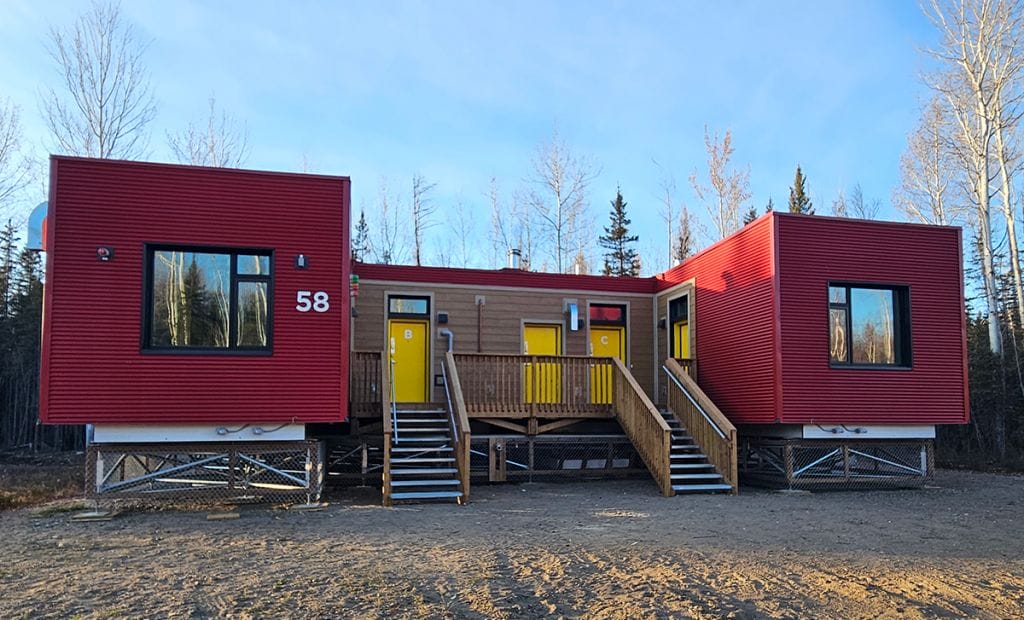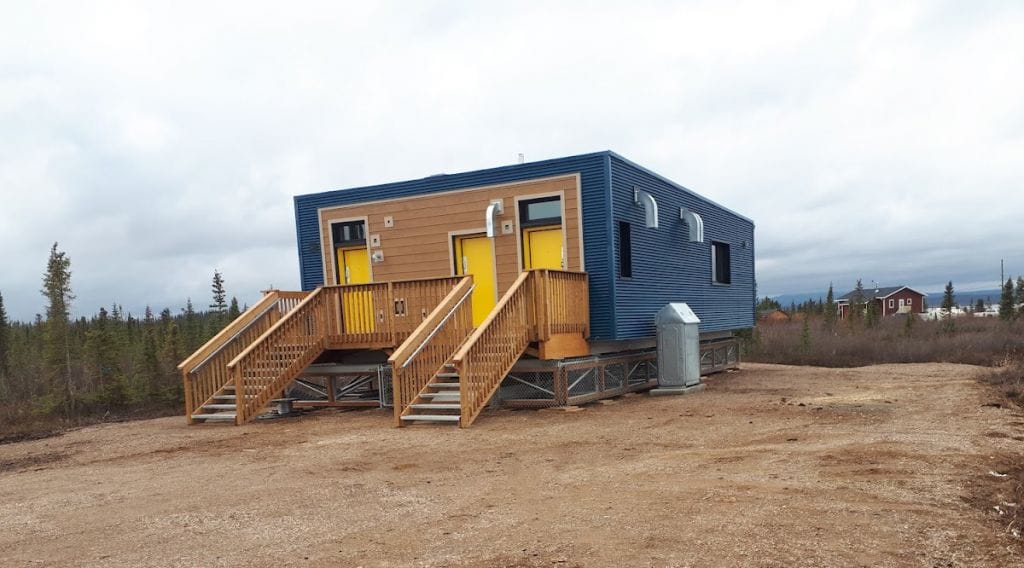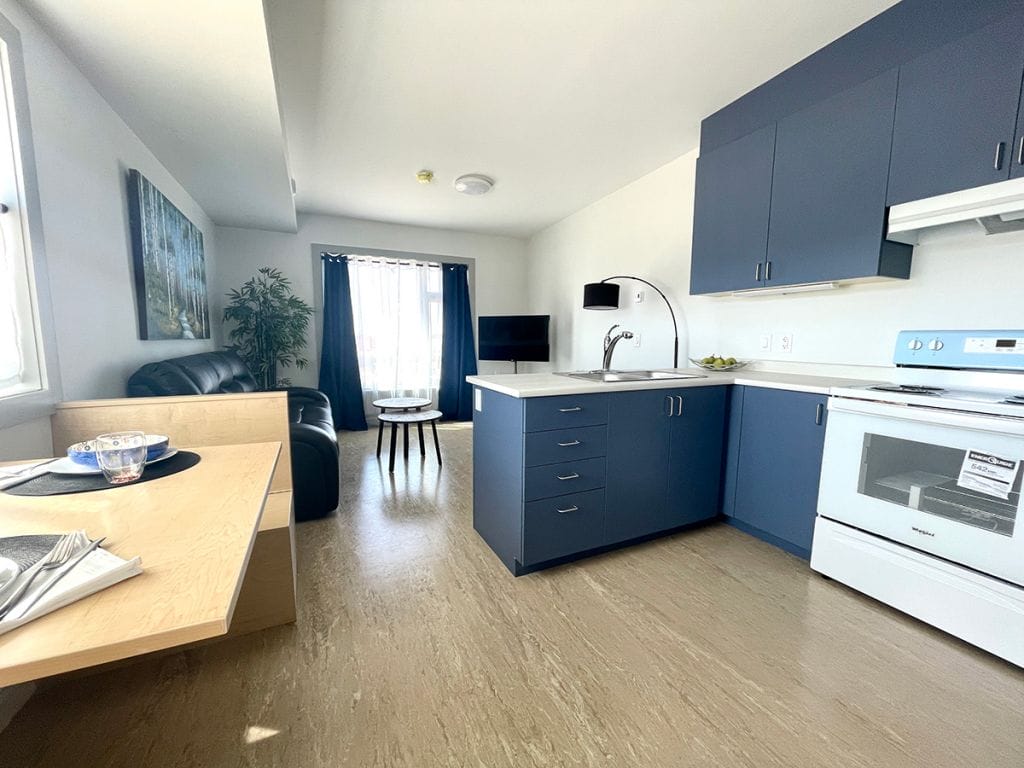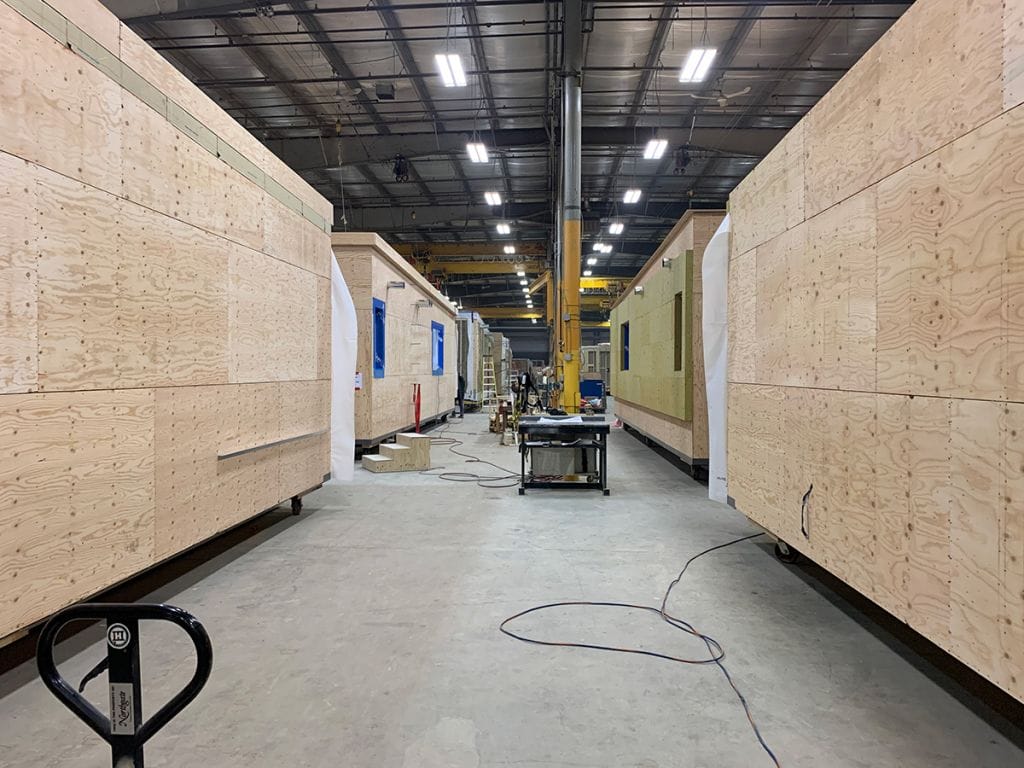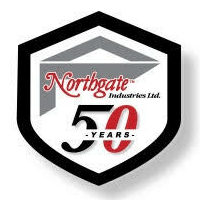Building Green, Living Clean
How Modular Construction Paves the Way for Zero-Waste and Eco-Efficiency

Ali Salman is the Director of Sales and Marketing for Northgate Industries
This Northern project consisted of 54 modular units making up duplexes and fourplexes with a combination of studio suites and one-bedroom suites. These units were 665 sq ft and 446 sq ft. Triodetic foundations with chain link skirting were used because of permafrost. These units were placed in 13 First Nations communities in the Northwest Territories. They were built to withstand the harshest climates, with temperatures reach down to -65 Fahrenheit, often for weeks at a time.
Modular construction, an innovative building method where structures are prefabricated off-site and then assembled on-site, is making significant strides in sustainable building practices. The method is increasingly recognized for its potential in achieving zero waste and superior environmental efficiency compared to traditional on-site construction. This article delves into the mechanisms through which modular construction achieves these environmental milestones, backed by statistics and research references.
Zero Waste through Precision and Recycling
Modular construction significantly reduces waste generation due to its precision and the controlled environment in which the modules are constructed. According to a report by Waste & Resources Action Program (WRAP), modular construction can reduce waste materials like timber, cardboard, plastics, and concrete by up to 90% compared to traditional construction methods. The precision of factory settings minimizes off-cuts and excess usage of materials. Additionally, any waste generated can be more efficiently sorted and recycled in a factory setting, unlike on a construction site where waste segregation and recycling can be more challenging.
Reduced Material Usage
The manufacturing process for modular buildings allows for more accurate material estimates, reducing over-ordering and excess use. This careful management of resources contributes to a reduction in the environmental impact associated with material extraction and processing. The Modular Building Institute reported that this process results in a material savings of up to 20%.
Lower Energy Consumption
Modular construction sites typically have a smaller carbon footprint. The bulk of construction activity takes place in a factory, which usually has better energy management systems than a traditional construction site. A study from the Journal of Building Engineering indicated that modular construction could lead to an average reduction in energy consumption of about 67% during the building phase. Moreover, transporting fully constructed modules to a site often requires fewer trips compared to the transportation of raw materials for on-site building, leading to reduced emissions from transportation.
Enhanced Building Efficiency
Modular buildings are often more energy-efficient than traditional buildings. The controlled environment of a factory allows for better insulation and airtightness, leading to reduced energy consumption in heating and cooling. Furthermore, research suggests that modular buildings can be up to 15% more energy-efficient than conventional buildings.
Sustainability in Material Choices
Modular construction provides an opportunity to use sustainable and recycled materials. The controlled environment of a factory allows for more experimentation and utilization of eco-friendly materials that might not be feasible in traditional construction settings.
Reduced Site Disturbance
Since most of the construction is done off-site, modular construction significantly reduces the environmental impact on the construction site. This approach leads to less soil erosion, less damage to the local ecosystem, and a reduction in the site’s carbon footprint.
Challenges and Future Directions
Despite its advantages, modular construction faces challenges such as transportation logistics, the need for standardization in design for more effective recycling, and perception issues in the market. However, with technological advancements and increasing awareness of environmental issues, modular construction is poised to play a crucial role in sustainable building practices.
In conclusion, modular construction presents a promising path towards zero waste and enhanced environmental efficiency in the building industry. By leveraging precision manufacturing, reduced material usage, and improved energy efficiency, this method aligns with the growing global emphasis on sustainability and environmental responsibility. As the industry evolves, modular construction is likely to become a standard bearer for eco-friendly building practices.
More from Modular Advantage
AI, Faster Sets, and Automation: The Future of Modular is at World of Modular
While the modular building industry has long known that it can be an effective solution to increase affordable housing, the word is slowly spreading to more mainstream audiences. Three presentations at this year’s World of Modular in Las Vegas hope to provide insight and direction for those seeking a real solution to the crisis.
An Insider’s Guide to the 2025 World of Modular
The Modular Building Institute is bringing its global World of Modular (WOM) event back to Las Vegas, and with it comes some of the industry’s best opportunities for networking, business development, and education. Over the course of the conference’s four days, there will be numerous opportunities for attendees to connect, learn, and leverage event resources to get the most out of the conference.
Affordable Housing Now: The Industry’s Best Bring New Solutions to World of Modular
While the modular building industry has long known that it can be an effective solution to increase affordable housing, the word is slowly spreading to more mainstream audiences. Three presentations at this year’s World of Modular in Las Vegas hope to provide insight and direction for those seeking a real solution to the crisis.
Opportunities for Innovation in Modular Offsite Construction
Modular Offsite Construction has already shattered the myth that it only produces uninspired, box-like designs. Architectural innovations in module geometry, configurations, materials, and products make it possible to create visually stunning buildings without sacrificing functionality or efficiency.
Safe Modular Construction with Aerofilm Air Caster Transport
In collaboration with Aerofilm Systems, Heijmans developed innovative skids using air caster technology for moving modules easily and safely. These pallets are equipped with an auto-flow system, making operation extremely simple.
Miles, Modules, and Memes: Building a Modular Network One Flight at a Time
At the end of the day, social media is just another tool for building connections, and like any other tool, needs to be used skillfully to work properly. Use social media thoughtfully, and it will open doors to real opportunities and relationships you didn’t even see coming.
Falcon Structures: Thinking Inside the Box
Some of Falcon’s latest projects include creating container solutions for New York’s Central Park and an East Coast professional baseball team. More and more, Falcon is shipping out container bathrooms and locker rooms to improve traditionally difficult work environments, like those in oil and gas or construction.
UrbanBloc—From Passion to Industry Leader
UrbanBloc specializes in three main categories or markets – what they call “Phase 0” projects, amenities, and urban infill. Clients are often attracted to shipping containers because from a real estate perspective they are considered an asset. Having the flexibility to move and transport these assets allows owners to respond to different circumstances in a fluid manner that they can’t get with standard construction.
The Hospitality Game-Changer
“Hospitality is about more than just providing a service – it’s about delivering an experience,” says Anthony Halsch, CEO of ROXBOX. “And that’s where containers thrive. They allow us to create spaces that are unique, efficient, and sustainable.”
Container Conversions Counts on Simplicity to Provide Critical Solutions
Container Conversions has fabricated and developed thousands of containers for varied projects, including rental refrigeration options, offices, kitchens, temporary workplace housing, and mobile health clinics.

